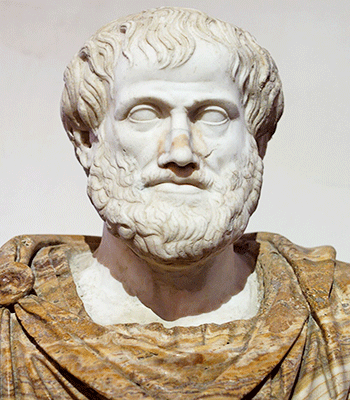
Full name: Aristotle
Birth Date: 384 BC
Birthplace: Stageira, Chalcidice
Died: 322 BC (aged 62), Euboea
Nationality: Greek
Education: Platonic Academy
Era: Ancient Philosophy
Aristotle was a Greek philosopher and scientist, a student of Plato, and a teacher of Alexander the Great. He enriched almost every subject such as physics, metaphysics, poetry, theater, music, logic, rhetoric, linguistics, politics, government, ethics, biology, and zoology.
Many of Aristotle’s ideas are outdated today. The rational approach underlying his work is more important than any of his individual theories. The notion is that the universe is not controlled by blind chance, magic, or the whims of capricious deities but that its behavior is subject to rational.
Aristotle was born in 384 BC, in Stageira, Chalcidice to Nicomachus, his father who was the personal physician to King Amyntas of Macedon. At eighteen, Aristotle went to Athens to continue his education at Plato‘s Academy. Aristotle remained at the academy for nearly twenty years until shortly after Plato died.
Aristotle was selected as the head of the royal academy of Macedon. During that time, he gave lessons not only to Alexander but also to two other future kings: Ptolemy and Cassander. Aristotle tutored Alexander for some years. When Alexander became the king in 335 B.C.,
Aristotle returned to Athens and opened a school, the Lyceum. Alexander did provide enough funds to his ex-teacher, Aristotle for research. Most probably it was the first government approach to funding research.
Aristotle’s influence and reputation will sustain over the period.
